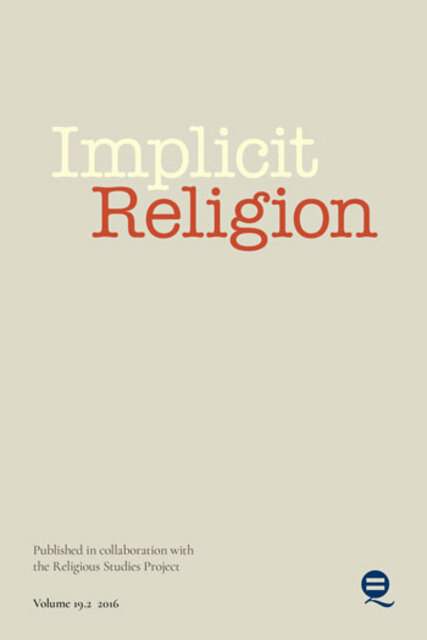Tintin as a Catholic comic: How Catholic Values Went Underground

Full description
Historically, the comic series Tintin originates in conservative and, indeed reactionary, circles in Belgian Catholicism. Hergé created Tintin for the children’s weekly of a newspaper that, at that time, shared the main themes of the reactionary Catholic movement: anti-communism, anti-capitalism, anti-Semitism and the fear of “secret societies”, and advocated a leading role for Catholic values in the public domain. During World War II, the adventures were made more fictional. In this way, in the eyes of present-day readers, Tintin has lost much of his politically and economically involved Catholicism. However, Tintin continues to embody Catholic values, albeit in a more implicit way. This interpretation explains those moral aspects of the series that have been considered repellent (e.g. its colonialism), the aspects that have been considered sympathetic (such as its anti-capitalism), and those that are considered self-evident: for instance the dedication to human dignity and the common good.
- typeImage
- created on
- file formatjpeg
- file size13 KB
- container titleImplicit Religion
- creatorKees de Groot
- issn1743-1697 (online)
- issue
- 3
- publisherEquinox Publishing Ltd.
- publisher placeSheffield, United Kingdom
- rightsEquinox Publishing Ltd.
- volume
- doi
We use cookies to analyze our traffic. Please decide if you are willing to accept cookies from our website. You can change this setting anytime in Privacy Settings.
